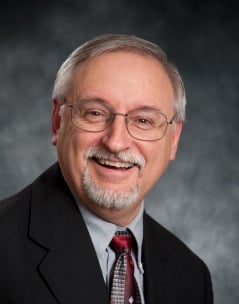Leszek
Kolakowski, a Polish philosopher who weakened Marxism’s grip on Eastern Europe,
recently died. Few, I suspect, knew who he was. I consider myself fortunate to
have read some of Kolakowski, one book being his scintillating sketch of the
history of ideas by probing the central idea of twenty-three thinkers. That
book is called Why Is There Something Rather Than Nothing?: 23 Questions from Great Philosophers
. My own reading of that book impressed me again with
the connection of philosophers with their world. From Socrates to Kierkegaard,
philosophers are products of their day.
So
are we.
Which raises the profound problem of blinders when it comes to
perceiving what is influencing us, and which raises the other profound problem
of needing to understand our cultural blinders in order to break through them
with the light of the gospel. Kolakowski’s chapters are short, and everything
short when it comes to the history of ideas risks simplicities that mask
nuance. I risk the same in what I am about to suggest: that the current generation emerges out of a toxic combination of
modernity and postmodernity.
In
another context (Leadership Journal)
I called the toxicity of the current generation a “self in a castle.”
Modernity’s singular contribution to the history of ideas is individualism.
David Bentley Hart gets this exactly right in his new rant against the flimsy
ideas in new atheism when he writes: “We live in an age whose chief value has
been determined, by overwhelming consensus, to be the inviolable liberty of
personal volition, the right to decide for ourselves what we shall believe,
want, need, own, or serve” (Atheist
Delusions, 21-22). That is, “it is choice itself, and not what we choose,
that is the first good.” Personal freedom, which both Kolakowski and Hart
understand far more profoundly than most, has become getting to do whatever I
want, when I want, and how I want – and government’s job is to make sure it
happens now. That’s, of course, an exaggeration, but it’s the exaggeration that
is causing our problem in gospel work today. Perhaps the most important words
in Hart’s lines above are “by overwhelming consensus.” The consensus is so
overwhelming that the emerging generation – each of us – believes we can form
our own religion. A religion of our own making, however, never leads to transcendence
or worship of God or anything like the ancient Hebrews’ “fear of God.” Instead,
we tinker on the edge of holiness with the notion of experiencing The Beyond.
How
feeble of a god is that? When “The Beyond” evokes mystery or suggests to our
minds that we are on the edge of something important, then we need to look into
abyss of where we are headed.
If
modernity handed on to our culture a sense of individualism that has been
ratcheted up beyond what either Bible or philosophers would ever recognize, postmodernity
tells us that individual choice itself is relative. I don’t believe we should
dismiss postmodernity with the derisive, and far too often unthinking, “moral
relativism,” but there is within postmodernity’s deepest impulses the belief
that universal truth and all-encompassing metanarratives can’t be had. We are
too finite and when folks do think they’ve found the magical metanarrative for
all, they abuse power and turn violent. Well, yes, there’s some truth to that,
but that’s the whole problem with postmodernity. Genuine insights become,
paradoxically enough, all-encompassing metanarratives against all
metanarratives. This tendency is one of postmodernity’s addictions.
So,
here we are. Staring at a unique cultural product: humans turned inward to
invest sanctity in the Self and who have constructed a postmodern castle wall
that informs that, because that Self is so sacred no one can violate your
choice – you determine what to believe and what is right and wrong. The Self is
protected the Wall of Individual Relative Choice.
The
tragedy of the “self in a castle” is that we are blind to it – blind to see it
in ourselves every time we choose to think we are the most progressive and wisest
of all generations, every time we fool ourselves into thinking we have achieved
levels of love that we call tolerance, which is a vapid imitation of what
genuine love is, and every time we think our moral struggles rival the profound
struggles of an Athanasius or an Augustine, a Luther or a Calvin, a Bonhoeffer
or a Martin Luther King, Jr..
The
Self is so large because our walls are so high, blinding us from seeing the
Morning Light. That Light is the Light of All Light.
First published on Out of Ur blog.

